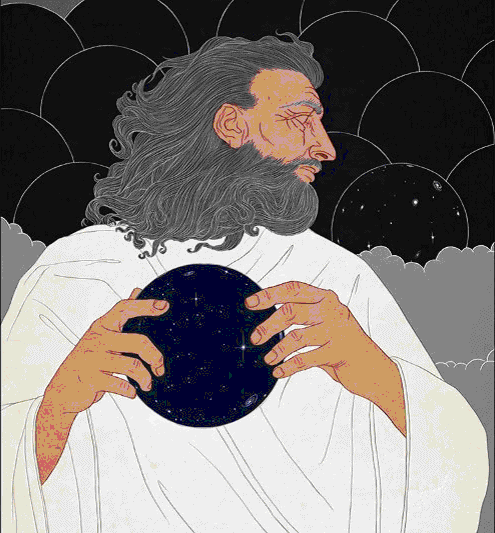
Atheism 5.Universal Constants |
| The Universal Constants are a source of debate for creationists
- for it is said that they are so "fine tuned"
that if they strayed by even a small part in a million then we would not be
here - this they say is "evidence of the divine hand at work" -what
utter rubbish - there are plenty of real world examples of where physical
systems hone themselves into stable configurations - indeed within
Chaos Theory -there are only really
3 modes of behaviour - stability,oscillation,and chaos - many systems
have "attractors" -that is - something
which forces the system into an alignment that remains stable - such as
our solar system - which itself may have
"evolved" by a kind of natural selection - those planets in unstable orbits
either perished or were not held by gravity sufficiently to remain in orbit
- thus the planets that are left "appear to be selected to be stable". Similarly, we can suggest that if ours were not the only universe - then we just happen to be in one that has accidentally found stability and life has started because of that. But many are unhappy with the "other universes" ideas- even though these are direct results of ideas in Quantum Theory.Then the question is asked as to why the constants in our universe -such as the charge on an electron - are so narrowly defined -that if they altered slightly the universe would not support life. We might say that it may not support life as WE KNOW IT - but maybe it would support life - and even if it did not - this in itself is not a sufficient argument to presume a creator - it merely means we are ignorant as to why the constants should be narrowly defined - there are other rational reasons for negating God -we cannot just say that because the constants' narrow definition lacks a good explanation - then God must be the missing solution. Given that many other systems find their own level and stability WITHIN the laws of physics it is not unreasonable to suppose the laws of physics themselves were so constrained or found their own level - it maybe there is a reason why they could not be anything OTHER than what they are - and so any probability argument is moot. The idea that the universe seems TUNED especially for us is subject to the anthropic principle - that is - if it was not as it is - we would not be here to notice. Douglas Adams uses the idea of a PUDDLE - he says if a puddle finds itself in a hole - the puddle finds that the hole is an "exact fit" - it is obvious to us why that is so - the puddle has no option but to fit the hole. If the puddle were able to exclaim "Wow - how come this hole is so remarkably suited to me?!" - we can then perhaps see the folly of the religious person who thinks the universe is made just for man by a creator.
|
An infinite universe and many worlds leave no room for a creator – and that’s been true for millennia. Time to rethink what’s sacred

HERE’S the dilemma: if the universe began with a quantum particle blipping into existence, inflating godlessly into space-time and a whole zoo of materials, then why is it so well suited for life?
For medieval philosophers, the purported perfection of the universe was the key to proving the existence of God. The universe is so fit for intelligent life that it must be the product of a powerful, benevolent external deity. Or, as popular theology might put it today: all this can’t be an accident.
Modern physics has also wrestled with this “fine-tuning problem”, and supplies its own answer. If only one universe exists, then it is strange to find it so hospitable to life, when nearly any other value for the gravitational or cosmological constants would have produced nothing at all. But if there is a “multiverse” of many universes, all with different constants, the problem vanishes: we’re here because we happen to be in one of the universes that works.
No miracles, no plan, no creator. As the cosmologist Bernard Carr puts it: “If you don’t want God, you’d better have a multiverse”. But is that really our only choice? Is there another way to think about divinity?
In Western philosophy, the theory of infinite worlds dates back 2500 years to the “atomists” of ancient Greece. For philosophers like Leucippus, Democritus and Epicurus, the universe was composed of microscopic, indivisible bits of matter, or atoms. These atoms moved eternally in a void, colliding haphazardly with one another until they formed a vortex.
In this vortex, the heavy elements clustered together to ...
Related Articles |